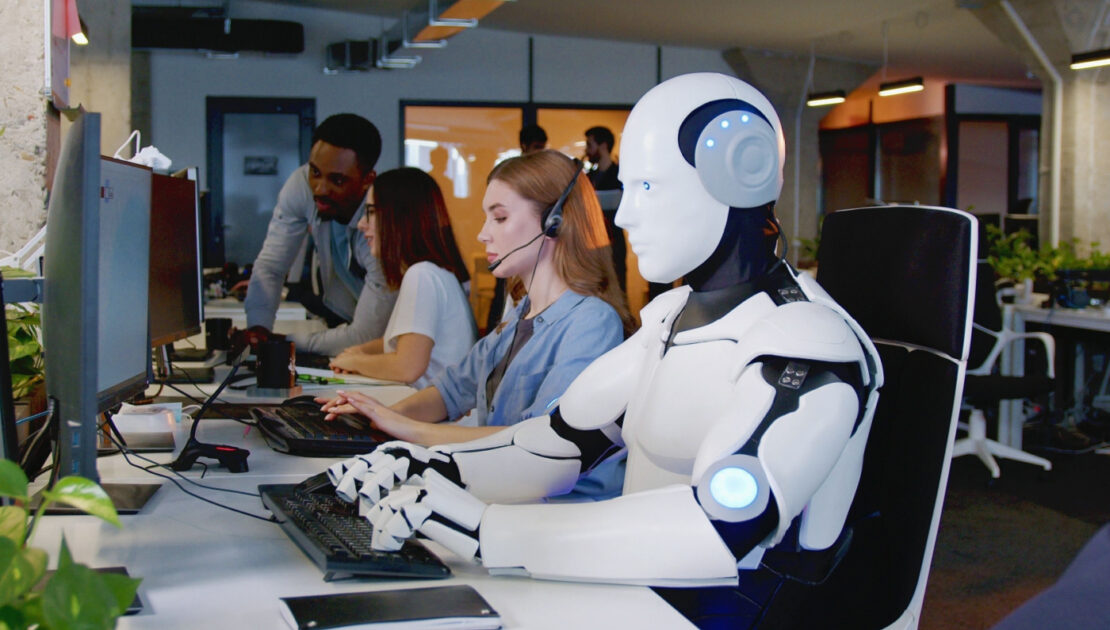[mc4wp_form id=”2320″]
AI Advancements: Reducing Job Opportunities in the Modern Workforce.
-
May 25, 2024
- Posted by: Evans Asare

AI Advancements: Reducing Job Opportunities in the Modern Workforce.
Artificial Intelligence (AI) has been revolutionizing various industries, bringing efficiency and innovation. However, its rapid advancement raises concerns about job displacement and the future of employment. This article explores how AI is transforming the job market, its impact on employment, and potential solutions to mitigate these effects.
The Rise of AI in the Workforce
AI technologies, such as machine learning, natural language processing, and robotics, have become integral in many sectors. From manufacturing to healthcare, AI-driven systems are performing tasks that were once solely the domain of humans. This shift towards automation is driven by the promise of increased productivity, accuracy, and cost savings.
The CEO of X, Elon Musk, said that artificial intelligence (AI) will make most jobs optional. Google CEO Sundar Pichai also echoed the sentiment, saying that AI will pretty much touch everything we do.
Impact on Traditional Jobs
The integration of AI has led to the automation of routine and repetitive tasks. Jobs in industries like manufacturing, customer service, and data entry are particularly vulnerable. For example, automated assembly lines and chatbots have significantly reduced the need for human labor in factories and call centers. As AI continues to evolve, more complex roles are also at risk.
The Skills Gap and Employment Challenges
AI’s advancement highlights a growing skills gap in the workforce. Many traditional jobs are being replaced by AI, but new jobs created by this technology often require specialized skills. Workers without training in AI, data science, or advanced digital skills may find it challenging to secure employment in the AI-driven job market.
Must read also: Cybercriminals Threaten To Leak London Drugs Data.
Economic and Social Implications
The displacement of jobs due to AI has significant economic and social implications. Unemployment can lead to economic instability, while the transition to new types of jobs may result in social disparities. Regions heavily dependent on industries prone to automation may experience higher rates of job loss and economic decline.
Potential Solutions and Strategies
To address the challenges posed by AI, several strategies can be considered:
- Reskilling and Upskilling: Investing in education and training programs to help workers acquire new skills relevant to the AI-driven economy.
- Policy and Regulation: Implementing policies that encourage the responsible use of AI and support displaced workers, such as unemployment benefits and job placement services.
- Promoting Human-AI Collaboration: Encouraging the development of AI systems that complement human workers rather than replace them, enhancing productivity while preserving employment.
Conclusion
While AI brings numerous benefits to various industries, it also poses significant challenges to traditional employment. Addressing the impact of AI on jobs requires a multifaceted approach, involving education, policy, and innovation. By preparing for these changes, society can harness the potential of AI while minimizing its disruptive effects on the workforce.
Now reading: AI Advancements: Reducing Job Opportunities in the Modern Workforce.

I like this web blog it’s a master piece! Glad I noticed this ohttps://69v.topn google.Raise your business
Here is my page; BrendanJ
Дэдпул и Росомаха фильм https://bit.ly/deadpool-wolverine-trailer-2024
https://bit.ly/krasiviy-seks-video-krasiviy-seks
Thank you for your sharing. I am worried that I lack creative ideas. It is your article that makes me full of hope. Thank you. But, I have a question, can you help me?
Thank you for your sharing. I am worried that I lack creative ideas. It is your article that makes me full of hope. Thank you. But, I have a question, can you help me?
Your point of view caught my eye and was very interesting. Thanks. I have a question for you.
https://tadalaccess.com/# where to buy generic cialis
bph treatment cialis: does cialis lowers blood pressure – buy a kilo of tadalafil powder
cialis where can i buy: Tadal Access – tadalafil from nootropic review
how to get cialis for free how long i have to wait to take tadalafil after antifugal or cialis tablets for sell
http://opendata.go.tz/id/api/1/util/snippet/api_info.html?resource_id=19e6c16a-f378-4b74-8dc6-5cb90c254b82&datastore_root_url=https://tadalaccess.com canadian pharmacy cialis 40 mg
buying cialis without a prescription cialis how to use and cialis company cialis free 30 day trial
cialis buy online canada cheapest cialis or what is the generic name for cialis
https://images.google.co.ve/url?q=https://tadalaccess.com how much does cialis cost at walmart
cialis canada pharmacy no prescription required generic cialis 20 mg from india and buying cialis without a prescription canada cialis for sale
https://tadalaccess.com/# cialis a domicilio new jersey
tadalafil review forum: what happens when you mix cialis with grapefruit? – best price on cialis
Психотерапевт Челны. professorkorotkov.ru 934 оценок